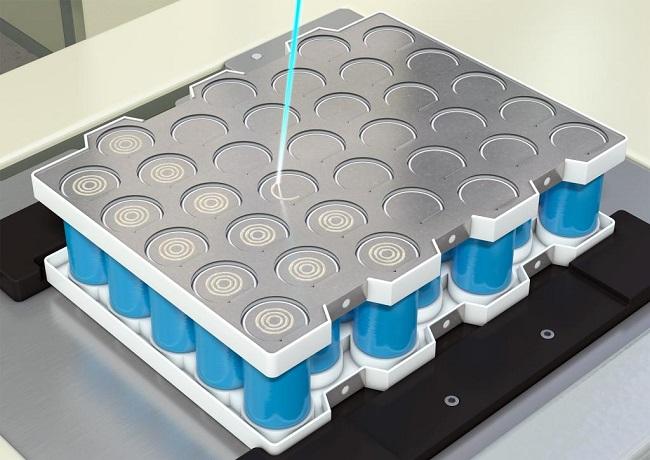CVE win Faraday Challenge funding
Cambridge Vacuum Engineering (CVE) has received funding from Innovate UK under the Faraday Battery Challenge.
A partnership between Innovate UK, UK Battery Industrialisation Centre, and The Faraday Institution, has be constructed to create a challenge that supports the research and development of the most promising, innovative, and sustainable battery technologies for the propulsion of electric vehicles in the automotive sector.
The result is £27.6 million in funding being invested across 17 research and innovation projects and facilities that will drive the growth of a strong battery business in the UK.
Electron beam welding
CVE’s proposal, EB-Bat, in collaboration with Delta Cosworth and TWI, will use the funding to design, build and test an electron beam (EB) welding machine that can weld battery busbar components.
Electron beam welding is potentially 20 times faster than laser welding. You can deflect and refocus electron beams much faster than laser beams, as this is achieved using magnetic fields, without moving parts as the welds are made. Plus, EBs do not suffer from reflectivity from copper and aluminium, making more consistent and reliable welds.
The EB-Bat project will provide a compelling demonstration of the process performance, productivity, quality, and economics to the automotive manufacturing sector with an aim to secure funding to take it into production.
Other benefits of welding battery busbars using electron beam over current laser welding methods include:
- Energy savings
- Smaller factory footprint
- A reduction in scrap
- Welding fume control
Figure 1. Electron beam column with rapid wide range deflection.
Figure 2. Busbar battery welding.
Project partners
The project partners combine a wealth of experience in the automotive industry, with Delta Cosworth, electric vehicle specialists developing innovative battery solutions and part of the wider Cosworth Group; and TWI as a world-leading welding and materials development organisation. CVE, the lead partner in the project, are designers and manufacturers of electron beam and laser welding machines for many applications, including turbochargers.
Simon Dowson, Managing Director at Delta Cosworth, commented:
“Developing and manufacturing batteries is one of our core capabilities at Delta Cosworth. We have already made leaps and bounds in delivering flexible battery solutions, our Cylindrical Scalable Modules being at the centre of our battery offering. Creating, more efficient and reliable ways to manufacture our batteries like electron welding will aid us in maximising our battery technology’s potential and give us the possibility to transfer new manufacturing techniques across the wider Cosworth group.”
Tony Harper, Challenge Director for the Faraday Battery Challenge, said:
“As we move towards a net zero future the UK’s electric vehicle industry must continue to evolve. These winning projects have all shown how their ideas can potentially accelerate the development of technologies or business practices in the UK. I look forward to seeing how their innovations help to significantly advance the performance characteristics of batteries for electric vehicles.”
Find out more about the funding in the UK’s Research and Innovation’s announcement: Delivering the Future of Battery Technology.


